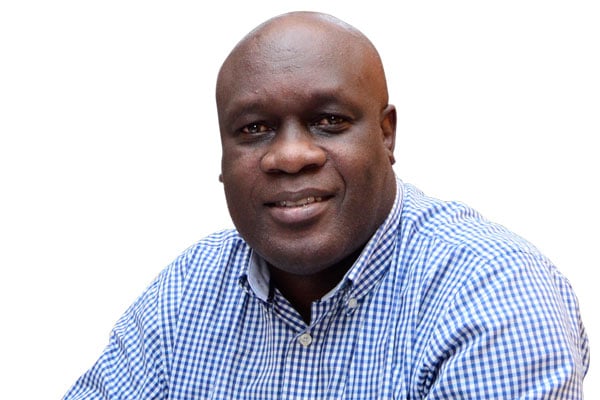Prime
How corruption, conflicts of interest stalk the newsrooms

Author: Odoobo C. Bichachi is the Nation Media Group (NMG)-Uganda public editor. PHOTO/FILE.
What you need to know:
- How Corruption and Conflicts of Interest Stalk the Newsroom”, is edited by Aidan White and is available online. I encourage journalists especially to read it, if for no other reason, than to have a pulse check.
- In his powerful introduction to the book, Aidan White writes:
The headline of this column is not really my headline! It is the title of a book published recently in London by the Ethical Journalism Network (EJN). The book whose full title is, “Untold Stories:
How Corruption and Conflicts of Interest Stalk the Newsroom”, is edited by Aidan White and is available online. I encourage journalists especially to read it, if for no other reason, than to have a pulse check.
In his powerful introduction to the book, Aidan White writes:
“The world of journalism is full of good intentions. From the top to the bottom of the media pyramid people talk of ‘mission’, the public interest, and the crucial role that journalism plays as the Fourth Estate, by holding power to account and exposing the wrongdoing of our political and corporate elite.
But in the modern media landscape the ethos of journalism as part of the ethical bedrock of democracy is under pressure. Everywhere in journalism there are ‘dark arts’ at work: people doing deals with advertisers to carry paid-for material disguised as honest news; reporters accepting bribes; or any of a multitude of dodgy practices which are kept hidden from the audience.”
The book chapters are contributed by reputable and experienced journalists, media owners, media managers and defenders of press freedom. Together, they put a spotlight on how this problem manifests in 18 countries, namely: Colombia, Denmark, Egypt, India, Malaysia, Mexico, Nigeria, Philippines, Turkey, United Kingdom, Ukraine and the Western Balkans (several countries grouped together).
The experiences shared make interesting reading and in many ways reflect the depth of the crisis across the world of journalism on all the continents as represented. Nigeria and Egypt give a sneak-peak of what it looks like in Africa.
The editor and contributors do acknowledge, rightly so, that “…most journalists and media do an honest job, but in times of financial crisis some cut corners and betray their ethical principles. In every country insiders know what is going on, but too often they are reluctant to talk about it openly.”
Different media houses around the world, taking cognizance of this problem, have put in place policies and processes to guard and mitigate against it. The NMG Editorial Policy Guidelines have the following provision to address this under the title, “Conflict of interest and unfair advantage”. It states:
“The Nation Media Group practices a policy of zero-tolerance of corrupt practices. In this regard, its journalists and editors must be free of obligation to any interest other than the public’s right to know the truth. Gifts, bribes, brown envelopes, favours, free travel, free meals or drinks, special treatment or privileges can compromise the integrity of journalists, editors and their employers. Journalists, editors and their employers should conduct themselves in a manner that protects them from conflicts of interest, real or apparent.
It is important not only to avoid conflicts of interest but also the appearances of such conflicts. In this connection, all situations capable of creating undue familiarity will be avoided or handled cautiously.
In publishing this book, the EJN hopes it can kick-start a conversation inside the newsrooms and among the wider public on a phenomenon that greatly undermines public trust in an institution so important, and is as dangerous to media freedom as the boots and bullets of the State that journalists grapple with every day as they seek to inform the public and hold power to account.
*****
Readers have your say
Mugeni Steven: I have the following complaints: (1) why is it that news can be in the newspaper but when you visit the internet website, the same story isn’t there until the following day or very late in the evening.(2) There was a contradiction on the would be the assassin of the late former president Idi Amin. One day you reported that the would be the assassin(s) have not been known up to date and other day you said that Amin freed them and warned them never to repeat. I stand to be corrected.
Public Editor: The online and print news platforms are generally run as separate but complimentary even though the audiences tend to overlap. Decisions about stories to publish are, therefore, done independently by the platform editors. However, online is also repository of history and record, so eventually all news is uploaded on the website for ease of reference in future.
Send your feedback/complaints to
[email protected] or
call/text on +256 776 500725.




